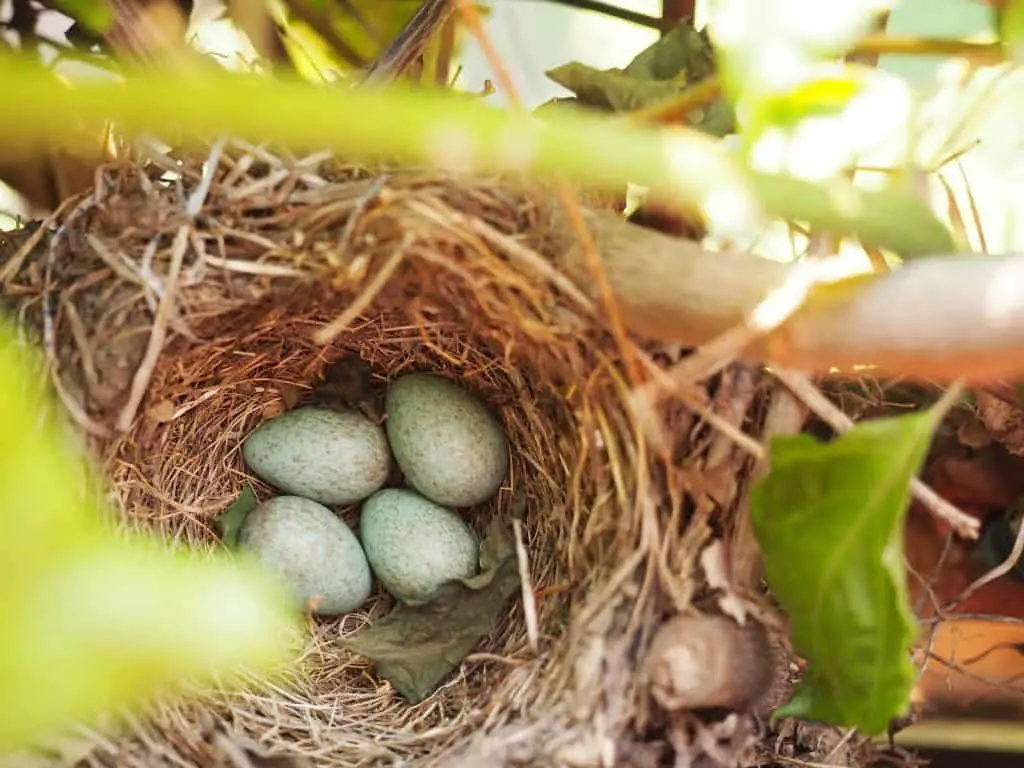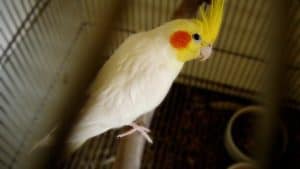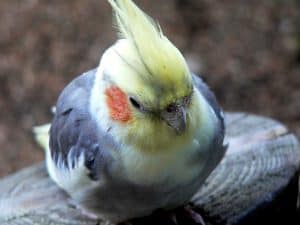How often do cockatiels lay eggs? If you have cockatiels, you already know how entertaining and loving these tiny parrots can be. In fact, many owners declare that parenthood has made them more interested in the world of mating cockatiels. There are a number of things to think about if you want to mate cockatiels.
Here is all the essential information you need to know about cockatiel egg laying and their reproductive schedule. Let’s get started with one of the most frequently asked questions I receive.
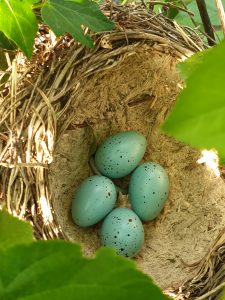
How often do cockatiels lay eggs?
So, How often do cockatiels lay eggs? Cockatiels lay 1-2 clutches of eggs per year, with each clutch containing 2-8 eggs. The hen will lay an egg every 48 hours until she has a full clutch, at which point incubation begins. Incubation usually takes about 20 days from when the hen starts to sit on the eggs, though this can vary. Keep in mind that not all the eggs will hatch at once; there may be a day or two between hatched chicks.
Hens usually lay eggs about 48 hours apart, so she may not start incubating her eggs until there are a few in the nest. If she does sit on the eggs before they are all laid, then expect them to hatch over several days.
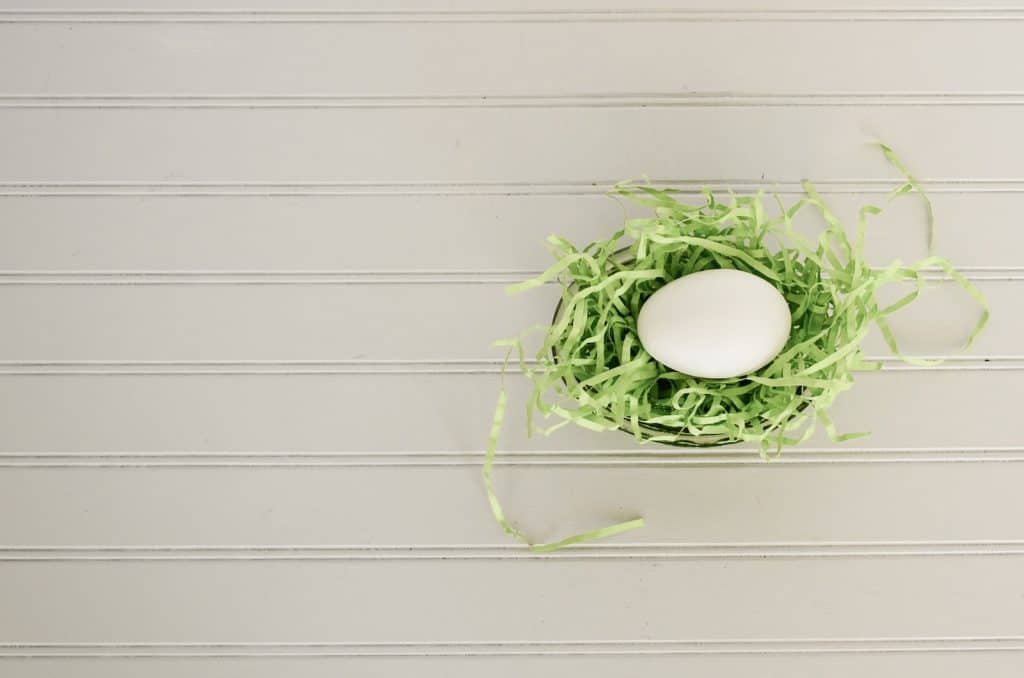
How often do cockatiels lay eggs: How do I care for mating cockatiels?
As the mating process is quite stressful for birds, it’s crucial that we take care of them as best as possible. This ensures that the eggs and fledglings will be born healthy and strong. While wild cockatiels typically breed in spring or summer, domestic cockatiels can breed year-round with proper environmental adjustments.
Create a comfortable environment for your birds by giving them exposure to natural light if possible, and keeping their cage warm with enough moisture. If you want your birds to mate, then they will need a large enough cage that has space for a nesting box as well as room to move around.
Make certain that they have a large number of toys and different types of food to keep them occupied. Soft foods, in particular, are ideal for a mating pair since this is what newborns would consume. Even if females nesting aren’t ready to leave their nesting box for food or water, they may not want to do so out of fear.
Waterfowl, like farmers and ranchers, will often distribute food to their flocks. If you’re new to this sort of thing, it’s best not to leave food out where dogs can get at it. You don’t need much space for a single feeder; they’re usually small. The rule of thumb is that one square foot should be able to hold the weight of around 0.25 pounds or 75g (1/30 pound or 1/10 pound per person). Some people who live in locations with harsh winters might want a bigger box devoted just to waterfowl feeders while others prefer two separate boxes: one for water fowl and another for everything else.
- Extra-Large Wrought Iron CageWith a large size of 30.3 L x 18 W x 51.2 H and a bar spacing of 3/8, this strong wrought iron cage offers a safe and spacious mansion for multiple birds/small animals. The 3-tier design expands the usable area vertically and creates more spaces for pets to climb and explore.
- Deluxe Cage For Small Animals & BirdsThis huge pet cage can accommodate more than five small to medium birds like lovebirds, conures, parakeets, budgies, cockatiels or small animals like sugar gliders, rats, squirrels, etc.
- Safe & Sweet HomeEvery door is secured with locks to make sure your little escape artists stay safely in their home when unattended. Moreover, the bar spacing of 1cm/ 3/8 is decent for small to medium birds or small animals.
- Solid Metal Cage ConstructionThe large bird cage is crafted from wrought iron with water- and oxidant-resistant finish for improved strength and high durability.
- Must-Have Mobility & Added StorageBenefit from the mobile stand with an open shelf, this extra-large pet cage gains convenient mobility and additional storage space for pet accessories.
How often do cockatiels lay eggs: How many clutches?
Cockatiels produce 1-2 clutches of eggs every year in the wild. It’s typical for cockatiels to lay 1-2 clutches each year in captivity. Because owners may influence their surroundings to extend the mating cycle, it is possible for your cockatiel to lay 3-4 clutches in captivity. Despite the fact that more than 2 clutches are possible yearly, many experts warn against doing so. Cockatiels can have up to 2 clutches per year, which is a healthy and happy number for them.
Keep in mind that laying eggs and nesting are highly stressful for the hens! If cockatiels lay too many eggs, it can lead to a variety of health issues including calcium shortages, malnutrition, weight loss, and even seizures.
Excess worry can also lead to stress and mental illness. This will have an impact on the fledglings’ care. A healthy mother will assist in the development of healthy babies. Even if you only want to produce two clutches, it’s probable that they’ll lay more than that in captivity. Borrowing from natural selection, captive birds generally have more controlled and safe environments, which promotes mating behavior.
If your birds continue to lay eggs, you’ll need to make some adjustments in the environment. This should discourage mating and give your female cockatiels a break. Shortening light exposure, removing nesting boxes and nesting materials, and even keeping the pair in separate cages are all examples of this. The more drastic the environmental change, the better, because it will aid in disrupting their hormone cycles.
How often do cockatiels lay eggs: What if my cockatiel is not sitting on her eggs?
To begin with, keep in mind that your hen may not sit on all of her eggs until she has laid the complete clutch. Don’t get too worked up if she lays an egg or two without sitting on them. She could be waiting to start incubation, so give her a few days and see whether she produces any more eggs.
It is common for cockatiel owners to have hens that do not sit on eggs, especially young or inexperienced hens that may be stressed. Just because a hen can lay eggs does not mean she will want to raise babies yet. A cockatiel that is sick or feels unsafe may also avoid sitting on her viable eggs.
If the bird isn’t sitting on eggs that will develop, you can take them and incubate them. You may still have healthy chicks this way. Another reason for non-fertile eggs is simply that they were never fertilized to begin with. If this is what’s happening, thebird might push the eggs out of the nest or ignore them altogether. In this instance, go ahead and remove the nonexistent future hatchlings.
How many eggs can a cockatiel lay?
A cockatiel, a popular pet bird species native to Australia, has the ability to lay eggs even without being bred with a male cockatiel. In general, a healthy female cockatiel can lay around four to seven eggs per clutch, but some can lay up to 20 eggs in rare cases. It’s also worth mentioning that male cockatiels cannot lay eggs since only the females of the species have such reproductive capability.
The process of egg-laying in cockatiels is fascinating as they can lay eggs without the presence of a male for fertilization. These eggs are known as unfertilized eggs and will not result in baby cockatiels. Many bird owners may have misinformation about male cockatiels laying eggs. However, it’s essential to know that male cockatiels do not lay eggs as they do not possess the reproductive ability to do so.
Egg binding is a condition that could potentially affect a female cockatiel during the egg-laying process. It is a serious health issue that occurs when a hen can’t pass an egg due to various reasons, such as weakness, obesity, or nutritional imbalance. It’s crucial to provide a proper diet, including essential vitamins and minerals like calcium, to keep a cockatiel in good health and avoiding egg-related complications. It is also important to consult a veterinarian if a cockatiel shows symptoms of egg binding, such as straining and visible discomfort.
Female cockatiels looking to lay their eggs often look for a secluded spot to ensure the safety of their eggs. If a nesting box is not provided, they may choose to lay their eggs on the cage floor, which can be problematic as the eggs become more vulnerable, and the cockatiel may accidentally crack them. To ensure a safe and comfortable environment for a cockatiel to lay eggs, a nesting box should be provided and the cage should be located in a quiet, low-traffic area.
How often do cockatiels lay eggs: When do cockatiels start and stop laying eggs?
Cockatiels reach puberty at around five to six months of age. This is when they can physically start displaying signs of sexual behavior. However, they will not become sexually mature until nine to 12 months old. One year is a fair indication of sexual maturity, and many experts advocate waiting until they are at least 18 months old to breed them.
They can then safely mate and lay eggs. Cockatiels may lay eggs until they are about ten years old if they remain healthy and don’t produce too many clutches each year. This is somewhat ahead of schedule when compared to their expected longevity in captivity, which is usually 16-20 years.
With healthy cockatiel eggs in hand, you can start thinking about raising the chicks! Cockatiel mating is a long process with many steps, but it all starts with cockatiel laying eggs. If you make sure your mated pair is healthy and their eggs are well-cared-for, then you’ll have no trouble getting some healthy fledglings soon.
Also, remember excessive egg-laying depletes the female cockatiel calcium and other nutrients. Chronic egg-laying process can cause health problems to your pet birds. So, be sure to give them enough vitamins and healthy food.
So, there you have it, your question about how often do cockatiels lay eggs has been answered.
Do cockatiels lay eggs without mating?
Yes, cockatiels can lay eggs without mating. Female cockatiels, like many other bird species, can produce and lay eggs even in the absence of a male or without mating. This is called egg-laying or producing infertile eggs. These eggs will not hatch since they have not been fertilized.
How often do cockatiels lay eggs? – Final Thoughts
In conclusion, the frequency of egg-laying in cockatiels depends on various factors such as age, health, and individual differences. Egg binding is a common risk associated with frequent egg-laying, causing discomfort and potential health complications in the birds. Male cockatiels do not lay eggs, as this is a biological function exclusive to female birds. It is crucial for pet owners to provide a comfortable and secure environment, monitor the health of their cockatiel, and seek veterinary assistance if signs of egg binding or other issues arise. By understanding the egg-laying process and maintaining a proper environment, such as a clean cage floor, cockatiel owners can ensure the well-being of their feathered companions.
Learn how to spot and manage stress in your feathered friend by reading How to Recognize and Treat Cockatiel Anxiety. Enhance your cockatiel’s daily activities with engaging and beneficial ideas from Incorporating Foraging Activities into Your Cockatiel’s Routine.
5 Great Tips for Cockatiel Cage Setup: How Should I Set up My Cockatiels Cage?
